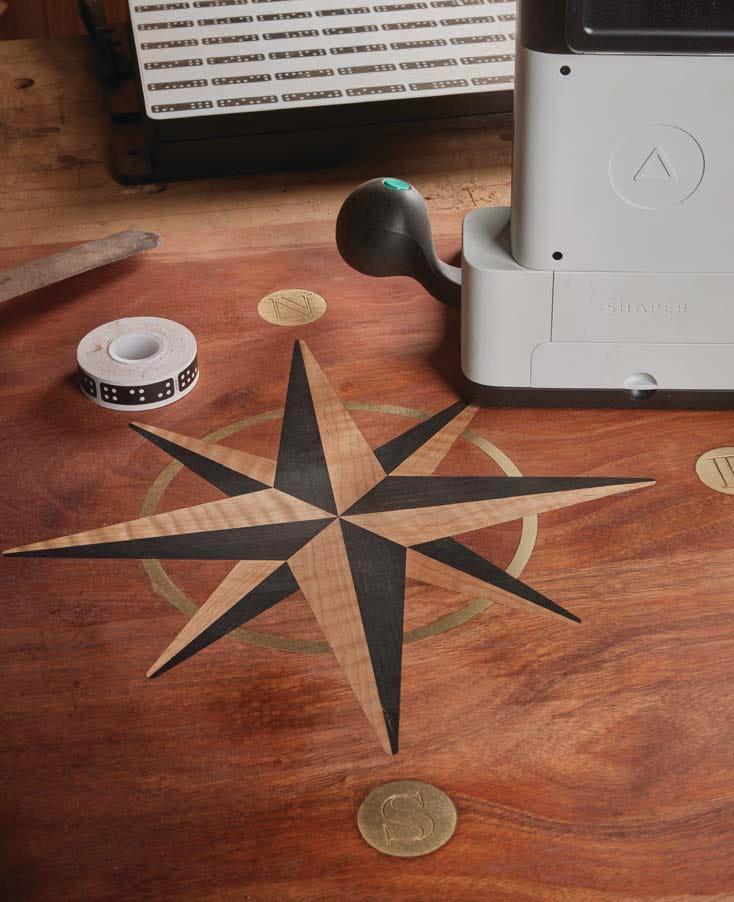
Self admittedly, I'm becoming a grumpy old man. I know what I am comfortable with, and it's fairly hard for me to break out of that sense of comfort. But, with that said, I always try and have an open mind when it comes to new technology, techniques, designs, etc. I think in my position, you have to.
When I recently had an inlay project pop up, I knew it was exactly the type of project I could use a CNC for.... If only I knew how to use one (it's been the better part of 20 years since I've used a CNC). However, the one tool that I do know how to use is Origin, by Shaper Tools. Creating inlays with Origin is a straightforward, and cool process, so I figured I would show you the steps to create handsome inlay.
Origin
Before I dive into how this inlay is created, I'm going assume that you've at least heard of Origin. If you haven't, here's the elevator speech: Origin is a hand-held CNC that uses strips of domino tape to know where the router is at. Scanning the tape (applied to your surface) creates a digital footprint of your area, and you can place artwork/designs/joinery on that. While you're manually moving the router to follow your design, the camera is tracking your movement, and making micro-adjustments to the motor's position to keep you on track. It sounds like voodoo, and it kind of is. But, it's the good kind. It works wonderfully well.
I also want to point out that, like everything in our magazine, this is not sponsored content. We do not accept sponsored content, nor will ever. This article features Origin because I enjoy using it, and think there's value in showing its capabilities.
Not an Artist
This story is from the December 2024 - Issue 281 edition of Popular Woodworking.
Start your 7-day Magzter GOLD free trial to access thousands of curated premium stories, and 9,000+ magazines and newspapers.
Already a subscriber ? Sign In
This story is from the December 2024 - Issue 281 edition of Popular Woodworking.
Start your 7-day Magzter GOLD free trial to access thousands of curated premium stories, and 9,000+ magazines and newspapers.
Already a subscriber? Sign In
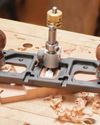
Blue Spruce Router Plane
One of the benefits of being in my position, is that I sometimes get to see tools that are in the works before they get released to the public. I've watched the development of the Blue Spruce Toolworks router plane for a while now, anxiously waiting for its release.
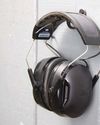
3M Worktunes Connect + Solar Hearing Protection
Woodworkers all know the importance of PPE in the shop. Hearing protection has probably made the biggest advancements over the last several years.

Turned Winged Box
This winged box is turned fast, and the end result will leave people asking how you did that.
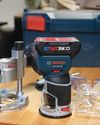
Bosch Colt Cordless Router
There is probably not a name more synonymous with compact routers than the Bosch Colt. For twenty years now, Bosch has been releasing compact routers under that moniker, but this model represents the biggest change yet—the Colt has gone cordless.
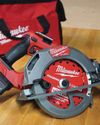
Milwaukee 7 1/4" Circular Saw Kit
Don't feel alarmed if you're feeling a bit of deja vu; back in October I reviewed the new Milwaukee FUEL™ 61/2\" circular saw, and now that I have my hands on its big brother, I wanted to share my thoughts here as well.
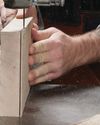
Setting Up Your Saw for Resawing
Set your bandsaw up for accurate resawing by following these simple setup tips.
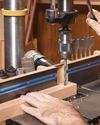
Dust Collection Fence
This fence is designed to be used at a drill press or router table, and features built-in dust collection for keeping your shop, and lungs, clean.
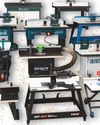
Comparing Portable Router Tables
Portable router tables are a great way to save space in your shop. We're taking a look at the different options available and laying out the differences between them.
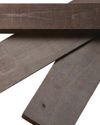
ThermalWood
ThermalWood Canada is offering specialty material to woodworkers all over the world, including an ebony alternative.
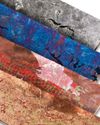
How to Create Patina Finishes
By combining paint, metal leaf, and some chemical reactions, you can create interesting effects on a variety of surfaces.